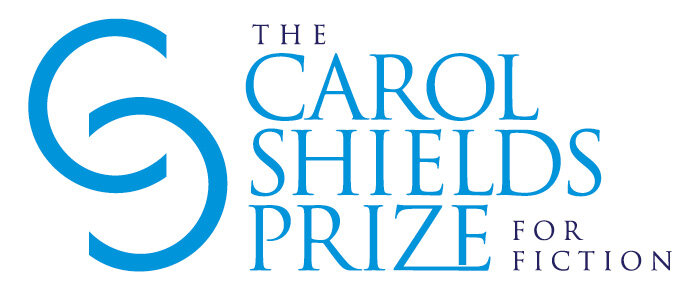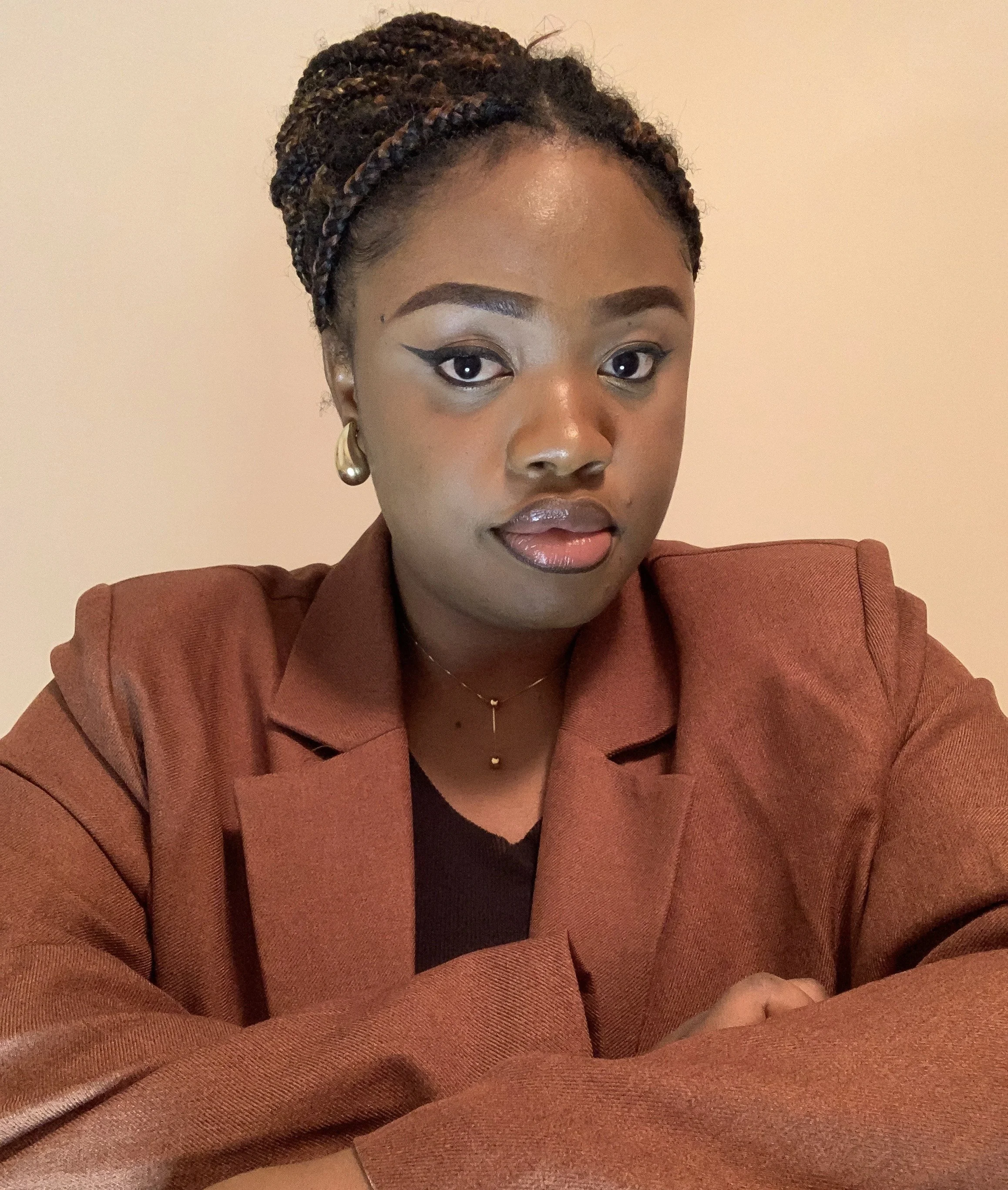Interview: Ugochi Okoli is the Recipient of the 2025 Carol Shields Prize Foundation Fellowship at Diaspora Dialogues
The Carol Shields Prize Foundation Fellowship at Diaspora Dialogues provides financial support to a woman or non-binary BIPOC writer who is a refugee or new immigrant to Canada. The stipend is intended to provide opportunity for a writer to create more freely from financial constraints.
As a part of the Fellowship, the recipient also receives the support of a mentor to provide structured feedback on their work, as well as access to Diaspora Dialogues’ suite of professional development training and networking events.
The Carol Shields Prize Foundation and Diaspora Dialogues are deeply grateful to the M.A. Faris Foundation for supporting this Fellowship. Learn more about the fellowship on our programs page.
“I’m always reminded of an Igbo proverb that says: ‘Oburo ofu onye nwe nwa,’ which translates to ‘It is not one person who owns a child.’ The proverb suggests that the care and nurturing of a child involve the extended family, community, and society as a whole, not just the parents, and I always try to reflect that in my writing. I always try to ask: If we all have a shared responsibility to care for each other, then how are we treating each other?”
We asked Ugochi Okoli, the 2025 recipient, some questions about her transformative experience. She talked about the importance of receiving the fellowship and the value of her mentorship. We also have a video (see below) of her answering a couple of questions and reading from her novel-in-progress, The Gathering of Stars.
The Carol Shields Prize for Fiction (CSPF): Can you tell us about the project you have been working on during the Carol Shields Prize Foundation Fellowship at Diaspora Dialogues?
Ugochi Okoli: Throughout the fellowship, I’ve been working on a novel about family, loss, and identity, set in a Nigerian household coping with the disappearance of their son. The story is told through his sister, who reflects on her brother’s life and how his absence reveals the cracks and tension that have always existed within their family. At its core, the novel explores how human differences, whether rooted in religion, culture, identity, or individuality, can both divide and deepen love. It is also a story about what it means to be Nigerian, and what it means to hold tightly to who you are in a world that often asks you to shrink or stay silent.
CSPF: What are the major themes or ideas that your work contemplates?
Ugochi: My work explores themes of family, identity, belonging, friendship, religion, and the resilience that holds people together even when love and expectations clash. Growing up in southeastern Nigeria, family and community shaped so much of who I am today. The open-door visits from aunties, neighbors checking in unannounced, strangers showing up like family, and the way everyone’s life felt connected to everyone else’s continue to influence my writing.
I’m always reminded of an Igbo proverb that says: "Oburo ofu onye nwe nwa" which translates to "It is not one person who owns a child." The proverb suggests that the care and nurturing of a child involve the extended family, community, and society as a whole, not just the parents, and I always try to reflect that in my writing. I always try to ask: If we all have a shared responsibility to care for each other, then how are we treating each other?
Family, for me, is both comfort and conflict. It’s where identity is shaped and tested. In this work, and much of my other writing, I explore how people navigate their individuality within the wake of cultural expectations and communal life. This work asks what happens when the desire to belong collides with the need to be oneself.
I also write about difference, particularly how society responds to people whose identities challenge what is considered acceptable. Through storytelling, I try to imagine a kinder world where love isn’t conditional and everyone is allowed to exist fully without fear or judgment. I hope my work opens room for empathy and understanding.
CSPF: What has the fellowship and mentorship process been like for you? How has it supported your practice / the development of your craft?
Ugochi: Honestly, it has been such an exciting journey. Since the day I received the email from Diaspora Dialogues until now, I have felt more hopeful about the possibilities of my writing. I’m thankful to the incredible team at Diaspora Dialogues and the wonderful people at the Carol Shields Prize Foundation. The meetings and connections have been deeply inspiring and affirming.
The mentorship process has also been very meaningful. From sending my work to, Francesca Ekwuyasi, my mentor, receiving clear and honest feedback, to spending long nights making revisions, it has all made a world of difference in my writing. I also really enjoyed my conversations with my mentor. Our sessions helped me lean more into my own voice and let go of the pressure of writing a perfect chapter. I’ve learned to tell lived experiences from a place of honesty and vulnerability, to understand my characters on a deeper, more personal level, and to tell their stories from that place of truth.
I’ve learned all this and much more through the edits, feedback, and conversations with my mentor. I’m deeply thankful for this incredible opportunity to grow both as a writer and as a person.
CSPF: What was the importance of getting the Carol Shields Prize fellowship at this point in your career?
Ugochi: Encouragement and validation. Encouragement to continue writing and validation that there is indeed space for the stories I want to tell. Relocating to Canada was a very big decision for me. I thought of how my stories would be received here and if people would want to read them. Receiving this fellowship at this stage of my career has been incredibly encouraging. It feels like that friendly pat on the back, reminding me to keep going, to keep writing, and to keep believing that my stories matter.
There were many times I sat in front of my laptop with nothing to write. I’d stare at my screen long enough to convince myself that maybe browsing online stores would somehow count as “creative research.” But then I’d remember that I’m a Carol Shields Prize Foundation fellow, and somehow that reminder always pulled me back to the page to try again.
CSPF: What is the importance of supporting women and non-binary writers?
Ugochi: I think it’s important for many reasons, and one of these reasons is that it opens up the literary landscape to a richer, more inclusive range of voices. By investing in works by women and non-binary writers, we make room for narratives that reflect the complexity and totality of human experience. We also create stories that expand, challenge, and reimagine how we see the world. These opportunities do not exist solely for the sake of representation.
I believe there’s an even bigger goal. There is an African saying that goes, “Until the lion learns how to write, every story will glorify the hunter,” which essentially means that if those who have been marginalized or silenced don't tell their own story, the dominant or powerful group will always control the narrative. And so, when women and non-binary writers are supported in this way, when we tell our stories, we tap into this powerful force for change, we challenge norms and expose truths about gender, class, and humanity.
For me, this is personal. As a woman and a new immigrant in Canada, navigating the literary space has been both rewarding and challenging. It takes time to find community, build networks, and access opportunities. That’s why programs like this, programs that champion underrepresented writers, matter so deeply; they make it possible for writers like me to grow, to share, and to be part of a larger creative conversation.
About Ugochi Okoli:
Ugochi Okoli is a Nigerian-born writer and communications professional based in Canada. Her work (poetry, fiction and non-fiction) explores themes of identity, womanhood, and belonging. Her poem “To the Broken Ones” was nominated for the Sundress Best of the Net Prize, and her writing has appeared in literary magazines such as The Fiction Pool, Leopard Skins and Limes, Active Muse, and elsewhere. She is also a contributor to the Women’s Power Vol. 2 anthology by the International Human Rights Art Festival (IHRF). With years of experience at the intersection of storytelling, leadership, and community engagement, Ugochi now serves as a Communications Coordinator, where she blends creativity with purpose across both her professional work and literary practice. She holds a Bachelor’s degree from Nnamdi Azikiwe University and a graduate certificate in Creative Writing from Humber College. She is a recipient of the 2025 Carol Shields Prize Foundation Fellowship at Diaspora Dialogues, and she is also a 2024 Ujima Leadership Fellow with the African Centre. Rooted in personal history and cultural memory, Ugochi’s writing centers African stories and lived experiences. She is committed to using stories to spark empathy, shift perspectives, and make space for diverse voices.

